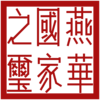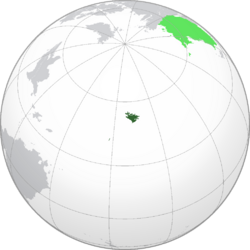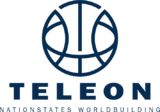Louwan
This article is incomplete because it is pending further input from participants, or it is a work-in-progress by one author. Please comment on this article's talk page to share your input, comments and questions. Note: To contribute to this article, you may need to seek help from the author(s) of this page. |
People's Union of Yingok 燕華人民國 (Yinese) | |
|---|---|
| Anthem: 前進,燕國 Chìhnjeun, Yingwok "Forward, Yingok" | |
| Seal 燕國國璽 (Yingwok Gwoksáai) "National Seal of Yingok"  | |
 Location of territories administered by the PUY (green), with Mainland Area claims (light green) | |
| Capital and largest city | Senging |
| Official languages | Yinese |
| Recognised national languages | Tanic Shanese |
| Ethnic groups (2019)[1] | 82% Yinese 11% Tanic 5.7% Shanese 1.3% Others |
| Religion (2022)[2] | 52% Irreligious 36.4% Sendou 10.3% Gregorianism 2.1% Others |
| Demonym(s) | Louwanese[3] |
| Government | Unitary Arvidsenist one-party socialist republic |
| Yip Cinying | |
• Premier | Cheui Houyin |
| Fung Jiwei | |
| Gu Git | |
| Legislature | People's National Council |
| History | |
| 5 July 1475 | |
| 1 November 1913 | |
| c. September 1969 | |
| 12 April 1970 | |
| 18 January 1978 – c. December 1981 | |
| 2 February 2009 | |
| Area | |
• Total | 181,196 km2 (69,960 sq mi) |
| Population | |
• 2021 estimate | |
• 2011 census | |
• Density | 62.04/km2 (160.7/sq mi) |
| GDP (PPP) | 2023 estimate |
• Total | |
• Per capita | |
| GDP (nominal) | 2023 estimate |
• Total | |
• Per capita | |
| Gini (2023) | medium |
| HDI (2022) | high |
| Currency | Louwanese Yun (圓) (LWY) |
| Time zone | UTC+10:30 (Louwan Mean Time, LMT) |
• Summer (DST) | UTC+11:30 (Louwan Summer Mean Time, LSMT) |
| Date format | dd-mm-yyyy |
| Driving side | left |
| Calling code | +57 |
| ISO 3166 code | LW |
| Internet TLD | .lw |
Louwan, officially the People's Union of Yingok (Yinese: 燕華人民國; Jinping: Jin3 Waa4 Jan4 Man4 Gwok3; Yinese Hungshui Hernicisation: Yin-wàh Yàhn-màhn-gwok; PUY), is an island country situated between the Alconian Ocean to the south and the Glacian Ocean to the north. Although the Louwanese archipelago is designated as part of Elia Borealis, the country is more culturally and politically linked with Abaria. The capital and largest city of Louwan is Senging, home to about 32.5% of the country's population of 11,241,400 as of 2021.
The island was formed by a series of volcanic eruptions in the Mid-Alconian Ridge some 20 million years ago. Since then, such volcanism as well as geysers have characterised the geological activity of Louwan. For much of world history, Louwan was virtually uninhabited until the arrival of Yinese settlers led by Chiang Fai in 1405, establishing the eponymous port town of Louwan. However, Louwan did not grow due to its nature as a fringe settlement on the edge of the known world and was eventually abandoned in 1438. This was until when the fragmentation of the Artuchid Empire and the collapse of trade on the Silk Road to Calesia drove the Hon Dynasty to seek western routes across the ocean. Thus, Louwan was recolonised in 1475 while Elia Borealis itself would be discovered a few years later. Louwan prospered over the next few centuries, due to its position as a natural outpost and entrepót between Western Abaria, the Elias, and Calesia. During the 18th to 19th century, Louwan acted as a penal colony for various ethnic minorities who rebelled on the mainland.
During the Fourth Winter Period, the Confederacy Coalition assumed control over the island following the Louwanese War between 1902 to 1906, later being integrated into the Second Yinese Republic in 1913. During the Yinese Civil War, the Kongchangtong took over the colony in the Louwanese Campaign in 1969. In the conflicts aftermath, the defeated combinationalist-communist government was forced evacuated to Louwan in an event known as the Great Retreat, where they established a new government-in-exile under martial law. Since then, the jurisdiction of the PUY have been limited to Louwan, Leimun, and other islands in the archipelago. Since the 1990s, Louwan has experienced significant internal development, entering a period of large-scale industrialisation and economic growth known as the Senging Miracle. By the late-2000s, Louwan had established itself as a strong export-oriented industrial economy, ranking highly in GDP per capita and economically focusing on steel, machinery, electronics, and chemicals manufacturing.
The international political status of Louwan is contentious. The PUY maintained its claim of being the sole legitimate government of Yingok despite the existence of the official government of the Fourth Republic on the mainland until 2008, when it officially acknowledged its control over mainland Yingok. Despite this, the PUY continues to recognise itself as the rightful government of Yingok and that the ROY is a "usurper regime". Louwan maintains normal diplomatic ties with many of the world's nations although very few recognise the PUY as the legitimate administration of Yingok.
Etymology
History
Geography
Politics
Government
Louwan is a one-party state governed by the Kongchangtong (KCT), also known as the Communist Party of Yingok, making Louwan one of the few countries in the world to be governed by communists. The People's National Council is the legislature of Louwan, with 210 members and meets every 6 months. No elections are held, with every member being nominated by the PNC Support Committee. The legislature is dominated by the KCT, with another 5 minor parties having nominal representation under the condition of upholding KCT leadership. While the People's National Council is considered the supreme body of the Louwanese government according to the state's constitution, it has been frequently described as a "rubber stamp" body.[9][10]
The President of the People's Union of Yingok, currently Yip Cinying is the head of state and is elected by the People's National Council for a term of 6 years. The current incumbent is also the General Secretary of the Kongchangtong and the commander-in-chief of the People's Union of Yingok Armed Forces. The Premier, currently Cheui Houyin is the head of government of Louwan and is officially nominated by the president and then elected by the legislature. The Premier presides over the Central People's Government, the nation's cabinet, consisting of 2 vice premiers, the Vice President currently Gu Git, and the head of ministries and commissions.[10]
Kongchangtong
Administrative divisions
Foreign relations
Military
Economy
Demographics
Culture
See also
References
- ↑ "Annual Yearbook 2019". Louwan Government. 2019. Retrieved 21 February 2022.
- ↑ Yun, Salgado (2022). "Religions of Abaria in the Modern Day". Religion and Society Abaria. Retrieved 8 December 2023.
- ↑ Fernando Albacete (ed.). Encyclopedia Louwan (19 ed.). World Factbook.
- ↑ 2021 Revision of World Population Prospects. United Congress.
- ↑ Hong, Datyoeng (16 October 2011). "Why the Population of Louwan is Declining". South Yinese Post. Retrieved 2 December 2011.
- ↑ 6.0 6.1 6.2 6.3 "2022-2023 Economic Analysis" (PDF). Louwan Government. Retrieved 4 May 2023.
- ↑ "Gini index – Louwan". Gini index. 2023. Retrieved 4 January 2024.
- ↑ "HDI Report 2021-2022" (PDF). United Congress Development Programme. 16 January 2023. Retrieved 23 January 2023.
- ↑ "Louwan's Political System in Charts". Decoding Louwan. 2020.
- ↑ 10.0 10.1 "Constitution of the People's Union of Yingok". PUY Government. Retrieved 30 October 2019.




